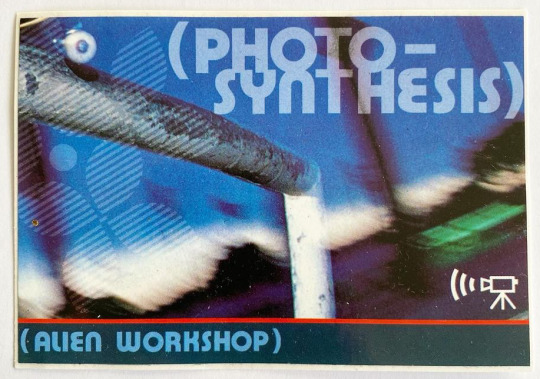#aws
Explore tagged Tumblr posts
Text
Amazon’s financial shell game let it create an “impossible” monopoly

I'm on tour with my new, nationally bestselling novel The Bezzle! Catch me in TUCSON (Mar 9-10), then San Francisco (Mar 13), Anaheim, and more!

For the pro-monopoly crowd that absolutely dominated antitrust law from the Carter administration until 2020, Amazon presents a genuinely puzzling paradox: the company's monopoly power was never supposed to emerge, and if it did, it should have crumbled immediately.
Pro-monopoly economists embody Ely Devons's famous aphorism that "If economists wished to study the horse, they wouldn’t go and look at horses. They’d sit in their studies and say to themselves, ‘What would I do if I were a horse?’":
https://pluralistic.net/2022/10/27/economism/#what-would-i-do-if-i-were-a-horse
Rather than using the way the world actually works as their starting point for how to think about it, they build elaborate models out of abstract principles like "rational actors." The resulting mathematical models are so abstractly elegant that it's easy to forget that they're just imaginative exercises, disconnected from reality:
https://pluralistic.net/2023/04/03/all-models-are-wrong/#some-are-useful
These models predicted that it would be impossible for Amazon to attain monopoly power. Even if they became a monopoly – in the sense of dominating sales of various kinds of goods – the company still wouldn't get monopoly power.
For example, if Amazon tried to take over a category by selling goods below cost ("predatory pricing"), then rivals could just wait until the company got tired of losing money and put prices back up, and then those rivals could go back to competing. And if Amazon tried to keep the loss-leader going indefinitely by "cross-subsidizing" the losses with high-margin profits from some other part of its business, rivals could sell those high margin goods at a lower margin, which would lure away Amazon customers and cut the supply lines for the price war it was fighting with its discounted products.
That's what the model predicted, but it's not what happened in the real world. In the real world, Amazon was able use its access to the capital markets to embark on scorched-earth predatory pricing campaigns. When diapers.com refused to sell out to Amazon, the company casually committed $100m to selling diapers below cost. Diapers.com went bust, Amazon bought it for pennies on the dollar and shut it down:
https://www.theverge.com/2019/5/13/18563379/amazon-predatory-pricing-antitrust-law
Investors got the message: don't compete with Amazon. They can remain predatory longer than you can remain solvent.
Now, not everyone shared the antitrust establishment's confidence that Amazon couldn't create a durable monopoly with market power. In 2017, Lina Khan – then a third year law student – published "Amazon's Antitrust Paradox," a landmark paper arguing that Amazon had all the tools it needed to amass monopoly power:
https://www.yalelawjournal.org/note/amazons-antitrust-paradox
Today, Khan is chair of the FTC, and has brought a case against Amazon that builds on some of the theories from that paper. One outcome of that suit is an unprecedented look at Amazon's internal operations. But, as the Institute for Local Self-Reliance's Stacy Mitchell describes in a piece for The Atlantic, key pieces of information have been totally redacted in the court exhibits:
https://www.theatlantic.com/ideas/archive/2024/02/amazon-profits-antitrust-ftc/677580/
The most important missing datum: how much money Amazon makes from each of its lines of business. Amazon's own story is that it basically breaks even on its retail operation, and keeps the whole business afloat with profits from its AWS cloud computing division. This is an important narrative, because if it's true, then Amazon can't be forcing up retail prices, which is the crux of the FTC's case against the company.
Here's what we know for sure about Amazon's retail business. First: merchants can't live without Amazon. The majority of US households have Prime, and 90% of Prime households start their ecommerce searches on Amazon; if they find what they're looking for, they buy it and stop. Thus, merchants who don't sell on Amazon just don't sell. This is called "monopsony power" and it's a lot easier to maintain than monopoly power. For most manufacturers, a 10% overnight drop in sales is a catastrophe, so a retailer that commands even a 10% market-share can extract huge concessions from its suppliers. Amazon's share of most categories of goods is a lot higher than 10%!
What kind of monopsony power does Amazon wield? Well, for one thing, it is able to levy a huge tax on its sellers. Add up all the junk-fees Amazon charges its platform sellers and it comes out to 45-51%:
https://pluralistic.net/2023/04/25/greedflation/#commissar-bezos
Competitive businesses just don't have 45% margins! No one can afford to kick that much back to Amazon. What is a merchant to do? Sell on Amazon and you lose money on every sale. Don't sell on Amazon and you don't get any business.
The only answer: raise prices on Amazon. After all, Prime customers – the majority of Amazon's retail business – don't shop for competitive prices. If Amazon wants a 45% vig, you can raise your Amazon prices by a third and just about break even.
But Amazon is wise to that: they have a "most favored nation" rule that punishes suppliers who sell goods more cheaply in rival stores, or even on their own site. The punishments vary, from banishing your products to page ten million of search-results to simply kicking you off the platform. With publishers, Amazon reserves the right to lower the prices they set when listing their books, to match the lowest price on the web, and paying publishers less for each sale.
That means that suppliers who sell on Amazon (which is anyone who wants to stay in business) have to dramatically hike their prices on Amazon, and when they do, they also have to hike their prices everywhere else (no wonder Prime customers don't bother to search elsewhere for a better deal!).
Now, Amazon says this is all wrong. That 45-51% vig they claim from business customers is barely enough to break even. The company's profits – they insist – come from selling AWS cloud service. The retail operation is just a public service they provide to us with cross-subsidy from those fat AWS margins.
This is a hell of a claim. Last year, Amazon raked in $130 billion in seller fees. In other words: they booked more revenue from junk fees than Bank of America made through its whole operation. Amazon's junk fees add up to more than all of Meta's revenues:
https://s2.q4cdn.com/299287126/files/doc_financials/2023/q4/AMZN-Q4-2023-Earnings-Release.pdf
Amazon claims that none of this is profit – it's just covering their operating expenses. According to Amazon, its non-AWS units combined have a one percent profit margin.
Now, this is an eye-popping claim indeed. Amazon is a public company, which means that it has to make thorough quarterly and annual financial disclosures breaking down its profit and loss. You'd think that somewhere in those disclosures, we'd find some details.
You'd think so, but you'd be wrong. Amazon's disclosures do not break out profits and losses by segment. SEC rules actually require the company to make these per-segment disclosures:
https://scholarship.law.stjohns.edu/cgi/viewcontent.cgi?article=3524&context=lawreview#:~:text=If%20a%20company%20has%20more,income%20taxes%20and%20extraordinary%20items.
That rule was enacted in 1966, out of concern that companies could use cross-subsidies to fund predatory pricing and other anticompetitive practices. But over the years, the SEC just…stopped enforcing the rule. Companies have "near total managerial discretion" to lump business units together and group their profits and losses in bloated, undifferentiated balance-sheet items:
https://www.ucl.ac.uk/bartlett/public-purpose/publications/2021/dec/crouching-tiger-hidden-dragons
As Mitchell points you, it's not just Amazon that flouts this rule. We don't know how much money Google makes on Youtube, or how much Apple makes from the App Store (Apple told a federal judge that this number doesn't exist). Warren Buffett – with significant interest in hundreds of companies across dozens of markets – only breaks out seven segments of profit-and-loss for Berkshire Hathaway.
Recall that there is one category of data from the FTC's antitrust case against Amazon that has been completely redacted. One guess which category that is! Yup, the profit-and-loss for its retail operation and other lines of business.
These redactions are the judge's fault, but the real fault lies with the SEC. Amazon is a public company. In exchange for access to the capital markets, it owes the public certain disclosures, which are set out in the SEC's rulebook. The SEC lets Amazon – and other gigantic companies – get away with a degree of secrecy that should disqualify it from offering stock to the public. As Mitchell says, SEC chairman Gary Gensler should adopt "new rules that more concretely define what qualifies as a segment and remove the discretion given to executives."
Amazon is the poster-child for monopoly run amok. As Yanis Varoufakis writes in Technofeudalism, Amazon has actually become a post-capitalist enterprise. Amazon doesn't make profits (money derived from selling goods); it makes rents (money charged to people who are seeking to make a profit):
https://pluralistic.net/2023/09/28/cloudalists/#cloud-capital
Profits are the defining characteristic of a capitalist economy; rents are the defining characteristic of feudalism. Amazon looks like a bazaar where thousands of merchants offer goods for sale to the public, but look harder and you discover that all those stallholders are totally controlled by Amazon. Amazon decides what goods they can sell, how much they cost, and whether a customer ever sees them. And then Amazon takes $0.45-51 out of every dollar. Amazon's "marketplace" isn't like a flea market, it's more like the interconnected shops on Disneyland's Main Street, USA: the sign over the door might say "20th Century Music Company" or "Emporium," but they're all just one store, run by one company.
And because Amazon has so much control over its sellers, it is able to exercise power over its buyers. Amazon's search results push down the best deals on the platform and promote results from more expensive, lower-quality items whose sellers have paid a fortune for an "ad" (not really an ad, but rather the top spot in search listings):
https://pluralistic.net/2023/11/29/aethelred-the-unready/#not-one-penny-for-tribute
This is "Amazon's pricing paradox." Amazon can claim that it offers low-priced, high-quality goods on the platform, but it makes $38b/year pushing those good deals way, way down in its search results. The top result for your Amazon search averages 29% more expensive than the best deal Amazon offers. Buy something from those first four spots and you'll pay a 25% premium. On average, you need to pick the seventeenth item on the search results page to get the best deal:
https://scholarship.law.bu.edu/faculty_scholarship/3645/
For 40 years, pro-monopoly economists claimed that it would be impossible for Amazon to attain monopoly power over buyers and sellers. Today, Amazon exercises that power so thoroughly that its junk-fee revenues alone exceed the total revenues of Bank of America. Amazon's story – that these fees barely stretch to covering its costs – assumes a nearly inconceivable level of credulity in its audience. Regrettably – for the human race – there is a cohort of senior, highly respected economists who possess this degree of credulity and more.
Of course, there's an easy way to settle the argument: Amazon could just comply with SEC regs and break out its P&L for its e-commerce operation. I assure you, they're not hiding this data because they think you'll be pleasantly surprised when they do and they don't want to spoil the moment.

If you'd like an essay-formatted version of this post to read or share, here's a link to it on pluralistic.net, my surveillance-free, ad-free, tracker-free blog:
https://pluralistic.net/2024/03/01/managerial-discretion/#junk-fees

Image: Doc Searls (modified) https://www.flickr.com/photos/docsearls/4863121221/
CC BY 2.0 https://creativecommons.org/licenses/by/2.0/
#pluralistic#amazon#ilsr#institute for local self-reliance#amazon's antitrust paradox#antitrust#trustbusting#ftc#lina khan#aws#cross-subsidization#stacy mitchell#junk fees#most favored nation#sec#securities and exchange commission#segmenting#managerial discretion#ecommerce#technofeudalism
606 notes
·
View notes
Text

Their dynamic
372 notes
·
View notes
Text
Modern software development be like: I wrote 10 lines of code to call an API that calls another API, which calls yet another API that finally turns on a lightbulb. Pray that Cloudflare or AWS will not be down during this operation; otherwise, there will be no light for you.
119 notes
·
View notes
Text
"El amor perdura, la tristeza desvanece, pero el tiempo no espera."
A'A
#frasi tumblr#citas#frases#frases en español#buendia#aws#notas#positive mental attitude#buenasnoches#los mejores del mundo#abril2024#ans#aa#colombia#citas de amor#time#tiempo#lo leí por ahí
33 notes
·
View notes
Video
24h Spa 2024 by Ste Tit
#24h#Spa#2024#Automobile#Autosport#Auto#Belgian#Belgium#Crowdstrike#Car#Spa-Francorchamps#Francorchamps#Fanatec#GT#World#Challenge#BY#AWS#Racing#Race#Endurance#Voiture#Motorsport#Sport#TotalEnergies#Comtoyou#Mattia#Drudi#Nicki#Thiim
9 notes
·
View notes
Text
Brain zaps are great because you get to experience a power point slide transition in real life
#guess who had brain fog so bad last night that they forgot to take their medications 😎😎😎😎#i went through the whole day mystified because i was 100% sure i had taken my meds then saw i missed a dose on my birth control packet#and let out a scream of rage so loud that martians are still reeling#aws#antidepressant withdrawl syndrome#antidepressant withdrawal#antidepressants#duloxetine#cymbalta#chronic pain#chronic illness#fibromyalgia
24 notes
·
View notes
Text

50 notes
·
View notes
Text


28 August 2023:
I am thrilled to announce that the Fig team will be joining Amazon Web Services (AWS) and Amazon has acquired Fig's technology! ... Existing users will continue to be able to use Fig and will receive ongoing support. What's more, we are now making all the paid Fig Team features completely free. New users will not be able to sign up for Fig's products right now while we focus on optimizing them for existing customers and addressing some needs identified to integrate Fig with AWS. ... We can't wait to continue to innovate with you.
5 February 2024:
Fig is sunsetting, migrate to Amazon CodeWhisperer Happy 2024! ... We will continue supporting Fig until September 1. ... To all Fig’s users, customers, and contributors, we are incredibly grateful for your feedback, contributions, and support over the years. We are thrilled to have made such an impact and we are beyond excited to continue working with you all while we continue to ship!
10 notes
·
View notes
Text
Charles Leclerc turns concept into reality with a racetrack of his own design
4 notes
·
View notes
Text
hi okay. awsten is sosososo kitten coded. like.


now imagine

yeah,..,,,
25 notes
·
View notes
Text
TIL that AWS CEO Matt Garman is an unrepentant moron.
"Coding is just kind of like the language that we talk to computers. It's not necessarily the skill in and of itself," the executive said. "The skill in and of itself is like, how do I innovate? How do I go build something that's interesting for my end users to use?" [1]
I have never read an utterance more disconnected not just from the practical realities of development work, but from the very idea of materially productive work in general. These are the words of a chronic "ideas man" who has managed to delude himself into believing that labour does not exist, or at least holds no real value.
After all, his *very important* job does not require any amount of actual consideration or understanding of reality, so naturally he assumes that those of us with menial jobs where we actually have to *do things* are, I suppose, just making it up. Obviously our thoughts are equivalent to (and probably lesser than) those of the shiny new Ideas Machines that coincidentally don't come attached to a human body with pesky things like needs and limitations and rights.
(They also don't come attached to a source of Thought, but this will surely be patched into the next version.)
Fortunately for Mr. Garman, he lives in a walled, gilded village where things like quality and outcome and result don't need to matter.
"If you go forward 24 months from now, or some amount of time — I can't exactly predict where it is — it's possible that most developers are not coding" [ibid]
Yes of course, my lord. Whatever you say, my lord. If that is all, I'll be back to my desk, now.
---
7 notes
·
View notes
Text

135 notes
·
View notes
Text
"Cada sacrificio es una inversión en el tiempo que te regalas, amándote lo suficiente para construir la vida que deseas."
A'A
#frasi tumblr#citas#frases#frases en español#buendia#aws#notas#positive mental attitude#buenasnoches#los mejores del mundo#september#frases sex#love
14 notes
·
View notes
Video
24h Spa 2024 by Ste Tit
#24h#Spa#2024#Automobile#Autosport#Auto#Ancêtre#Historic#Belgian#Belgium#Car#Crowdstrike#Voiture#Motorsport#Sport#Racing#Race#Endurance#Francorchamps#Spa-Francorchamps#Fanatec#GT#World#Challenge#BY#AWS#BMW#M3#E30#Tic
10 notes
·
View notes
Photo

Mastering Serverless Architecture: Insights from Luca Mezzalira
2 notes
·
View notes